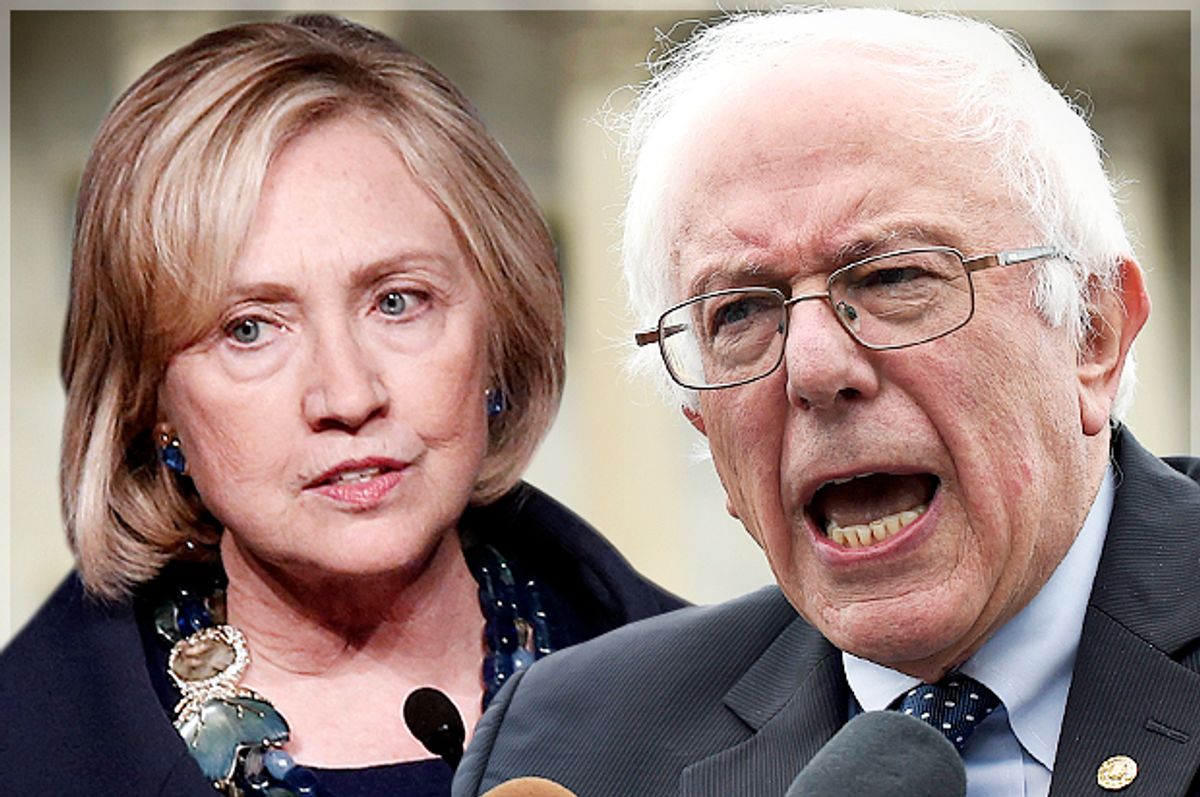As a new survey released this week revealed that American workers’ out-of-pocket medical costs are rising faster than wages or overall inflation, and amid controversy over a pharmaceutical company's decision to raise the price of a 62-year old infection-treating drug over 5,000 percent overnight, Democratic presidential candidates have tailored their health care platforms around the rising cost of prescription drugs.
Hillary Clinton is out today with a proposal barring insurers from offering health plans that charge patients more than $250 a month in co-payments for drugs.
"We need to protect hard-working Americans here at home from excessive costs. Too often these drugs cost a fortune," she said in Des Moines, Iowa today. Clinton chided drug companies who she said keep profits for themselves while "shifting the cost to families."
“Frankly, it is finally time for us to deal with the skyrocketing out-of-pocket health costs, and particularly runaway prescription-drug prices," Clinton said at a campaign stop in Louisiana on Monday.
“Because even though the uninsured rate is at its lowest point in decades, Americans with health insurance are paying more and more in out-of-pocket expenses,” Clinton noted during her defense of Obamacare.
When Clinton tweeted a New York Times article highlighting this week's Big Pharma monster of the moment, smug Turing Pharameutical CEO Martin Shkreli, calling his company's decision to inflate the cost of Daraprim "outrageous," biotechnology stocks plummeted:
Clinton's plan would encourage the development and use of generic drugs, redirecting funds to a U.S. Food and Drug Administration office with a backlog of generic drugs awaiting approval. Clinton's plan also raises the rates pharmaceutical companies pay to Medicare in exchange for the federal program insuring prescriptions drugs.
Most significantly, Clintons plan would allow Medicare to directly negotiate prices with drug manufacturers. As it stands now, drug prices for Medicare recipients are negotiated through disparate and confused channels.
Rival Bernie Sanders' plan to combat the runaway prescription drug costs also allows the more than 40 million Medicare patients to be represented as one powerful unit to negotiate for lower drug prices.
Sanders was, in fact, the first presidential candidate to propose a plan to combat high prescription drug costs earlier this month, cosponsoring the The Prescription Drug Affordability Act of 2015 with Maryland Democratic Rep. Elijah Cummings.
Noting that "nearly one out of every five Americans between the ages of 19 and 64 – 35 million people -- did not get their prescriptions filled because they did not have enough money," Sanders targeted "the greed of the pharmaceutical industry," which he argued "is killing Americans."
Sanders called it "unacceptable" that the monthly cost of cancer drugs has more than doubled over the last ten years and announced that he and Cummings had launched an investigation into Turing Pharmaceuticals.
For the most part, the two rivals have offered remarkably similar plans to tackle rising drug costs, both seeking to limit barriers allowing Americans to import Canadian drugs back into the United States.
Watch Sanders discuss the problem of skyrocketing prescription drug costs below:

Shares